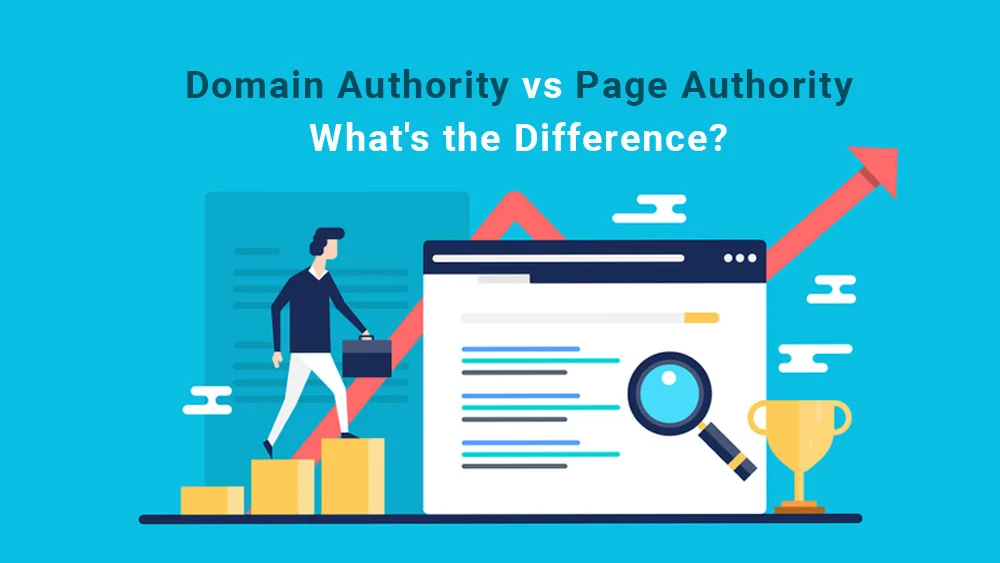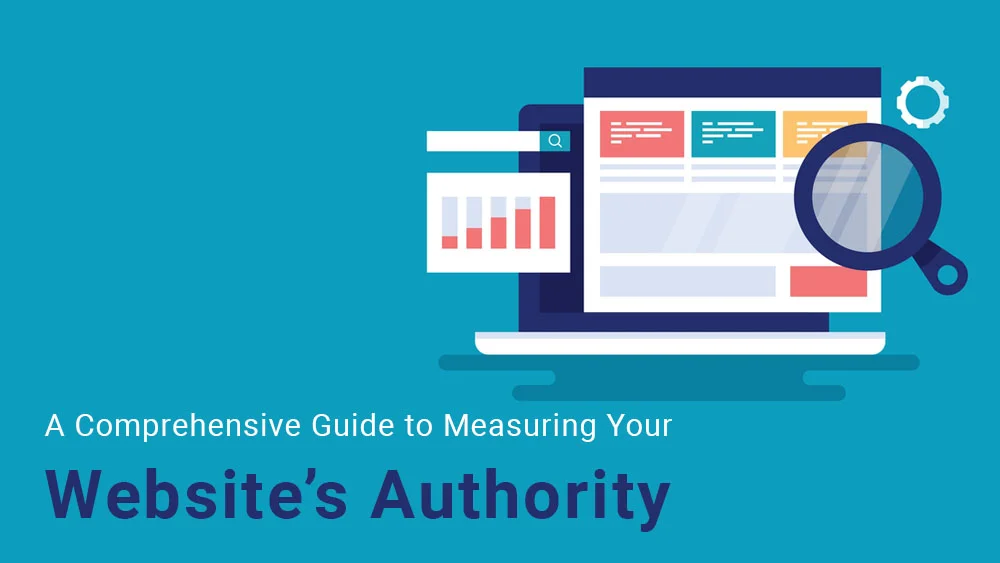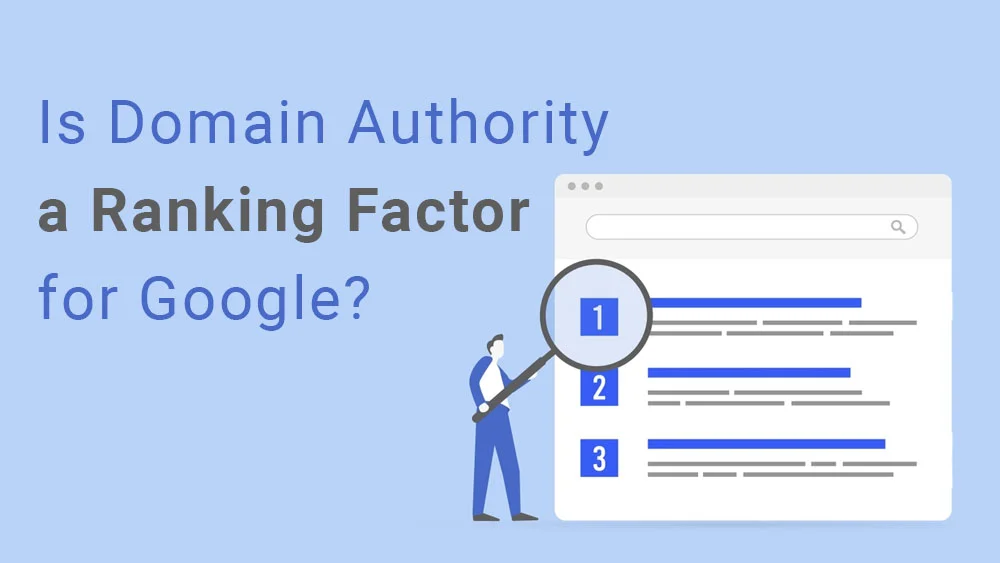For any business, a website is usually a very valuable asset. A business’s website needs to always be on point and regularly maintained. It is the gate through which users can learn more about a business, how it began, the products and services they offer, and any other information they can find through the various pages of a website. Many metrics typically determine the worth or effectiveness of a website. However, two of the many metrics stand out as being the most important ones that determine how your website is really doing and whether or not it is attracting users and customers. In this article, we will get to discover these two metrics by having a great comparison, which is domain authority vs. page authority. By the end of this article, you will know everything about both terms and which one is most important for your website.
What is Domain Authority
First things first, let us introduce domain authority very briefly. Domain authority is a vital term to fully understand to be able to improve your website’s visibility and ranking among search engines. So, buckle up, because it is about to get interesting. First, let us establish that, before being an actual metric, domain authority is an important component of SEO that has been here for as long as we can remember. However, with the exceptional rise in the number of websites, domain authority also became a ranking score or metric that is very important for all developers and SEO specialists.
Domain authority is the degree to which your website is performing on search engines. It is based on many factors, such as relevance to users, quality of content, keyword optimization, and many more, that establish the overall domain authority of your website. Domain authority, as a metric, is a ranking that your website has that is usually between 1 and 100. With 1 being extremely low and 100 being extremely extraordinary. So, if your website, for example, has a domain authority of 60, it is doing excellent but can do better. If your domain authority is something between 20 to 30, it is not doing quite well and needs to be optimized
The domain authority scale or ranking is not standardized, as it usually varies to a very small extent from one tool to another. For instance, the Moz domain authority ranking usually differs from SEMrush’s domain authority ranking, but not to a great degree.
Ways to Optimize Domain Authority
In terms of search engine rankings and traffic, domain authority is of prime significance. The domain authority of your website can be increased through the use of numerous established techniques. From creating high-quality content to building backlinks, here are three ways to optimize your domain authority.
Improving Your Website’s Content
Producing high-quality, relevant content is crucial if you want to increase your domain authority. To achieve this goal, you must provide content that is both interesting and useful to your intended audience. Make sure everything you publish is well-written, error-free, and of genuine use to your target audience. Make sure your material is optimized for search engines by using relevant keywords and focusing on your expertise. You can increase your website’s domain authority and solidify your position in your field by regularly publishing high-quality content.
Building Good-Quality Backlinks
The quality and quantity of your website’s backlinks are major contributors to your domain authority. Simply put, a backlink is a link that leads back to your website. Search engines attach greater significance to websites they perceive to be credible and trustworthy due to the number and quality of backlinks pointing to them. You can get high-quality links from other sites if you focus on producing content that those sites will want to connect to. It’s also a good idea to reach out to related websites and request a link exchange. Be sure the sites linking to you are trustworthy and of high quality, though.
Improving The UX
The quality of the user experience (UX) provided by your website will play a major role in establishing its credibility. Users and search engines will always take note of how user-unfriendly, slow-loading, or stuffed with irrelevant content your website is. Focus on developing a clear, easy-to-use design, improving the speed and efficiency of your website, and offering high-quality, relevant content that matches the demands of your target audience to enhance the UX of your website. Increasing your domain authority is only one of the many benefits you’ll see by prioritizing your website’s user experience.
What is Page Authority
On the other hand, in the domain authority vs. page authority comparison, page authority. We can really say that page authority is a part of domain authority. As the latter is a more inclusive and broad term. Page authority is a metric that calculates to what degree a specific page of your website is performing on search engines. For instance, some websites rank their main pages or home pages as the best-performing. Other websites, which usually contain blogs, have some specific articles that are so well-performing that they can be among the 10 top results on search engines. Page authority also follows the same ranking or scale as domain authority, which is from 1 to 100.
Some websites really emphasize improving the page authority of the pages that contain services and products. They try to optimize these pages as much as possible to be among the top results, gain visibility, and attract customers.
Ways to Optimize Page Authority
As we are playing a fair and square domain authority vs. page authority comparison, we will also list the best ways to optimize page authority and improve your page’s ranking on search engines.
Optimize Page’s Content
Optimizing the content of your page is a common step in both metrics and a crucial step in increasing its page authority score. To do this, you need to provide content that is of high quality, useful to your target audience, and interesting to read. Incorporate the most relevant and popular keywords in your niche into your writing by conducting keyword research. Be sure your information is well organized, simple to read, and has appropriate visuals. The authority of your page can be increased over time through consistent content updates.
Optimize SEO
Optimizing your site for search engines (SEO) is essential to increasing your site’s authority. Use appropriate keywords in the page titles, meta descriptions, and header tags to improve your website’s visibility in search engine results. Connect relevant pages inside your site using internal links, and work to acquire excellent quality backlinks from authoritative websites. In order to increase your website’s search engine rankings, you should regularly check on its performance and make any necessary changes.
Use Internal Linking
The page authority of your website can be greatly improved through the use of internal links. Help search engines index your site more effectively by connecting related pages of your website together. Your website’s overall search engine optimization (SEO) performance may increase as a result of this. Use meaningful anchor text when connecting to internal pages, and don’t overdo it; otherwise, search engines may flag your site as spam.
Use Social Media to Promote Your Content
You may boost traffic to your site and the exposure of your content by using social media. Get traffic back to your site by sharing your blog posts, articles, and other information on social media. To broaden your impact, make use of trending hashtags and interact with your audience. Advertising on social media platforms is another great way to reach your target demographic and increase click-throughs to your site.
Domain Authority vs. Page Authority: Which Is Better to Optimize
So, at the end of this domain authority vs. page authority comparison, which one should you optimize and concentrate on to ensure your website’s great performance? The answer is that there is no wrong answer. Both metrics are extremely important; however, they both have different processes, purposes, focus, calculations, and impacts. For instance, the impact of domain authority is broader, as it includes all of the website’s elements, pages, and content. On the other hand, page authority is more limited and specific, as it only concerns the ranking on one page.
As per the calculation, domain authority takes into account a range of factors, including the quality and quantity of inbound links to the website as a whole and the website’s general authority, to arrive at a final score. Page authority is based on on-site elements like content quality, keyword usage, and on-page SEO optimization, whereas domain authority is based on off-site factors like referrals and social shares.
Final Thoughts
Optimizing and improving both your page and domain authority is a major step in getting great brand exposure and contributes significantly to any business’s success. Now that you have a broad and extensive knowledge of both terms and the full comparison of domain authority vs. page authority, you can go on and start applying all the helpful techniques that will help you improve them. One strategy that deserves great emphasis, as it is usually common in all SEO metrics, is creating quality backlinks. Usually, backlinking can be tough for many businesses.
Finding a trustworthy website in your same field that would accept linking to your website in their content can be a tedious process to go through. But what if I told you that there is a platform where you can find the perfect website for creating great-quality backlinks as well as guest posting for free? LinkExchange.AI is a platform where you can find a plethora of websites that are seeking to exchange links and create backlinks with each other. All you have to do is find the website that is relevant to your field and type of content, submit a request for a link exchange, and wait for their response! as simple as that. So, what are you waiting for? Join LinkExchange.AI now for free and discover the endless possibilities of link exchange!










